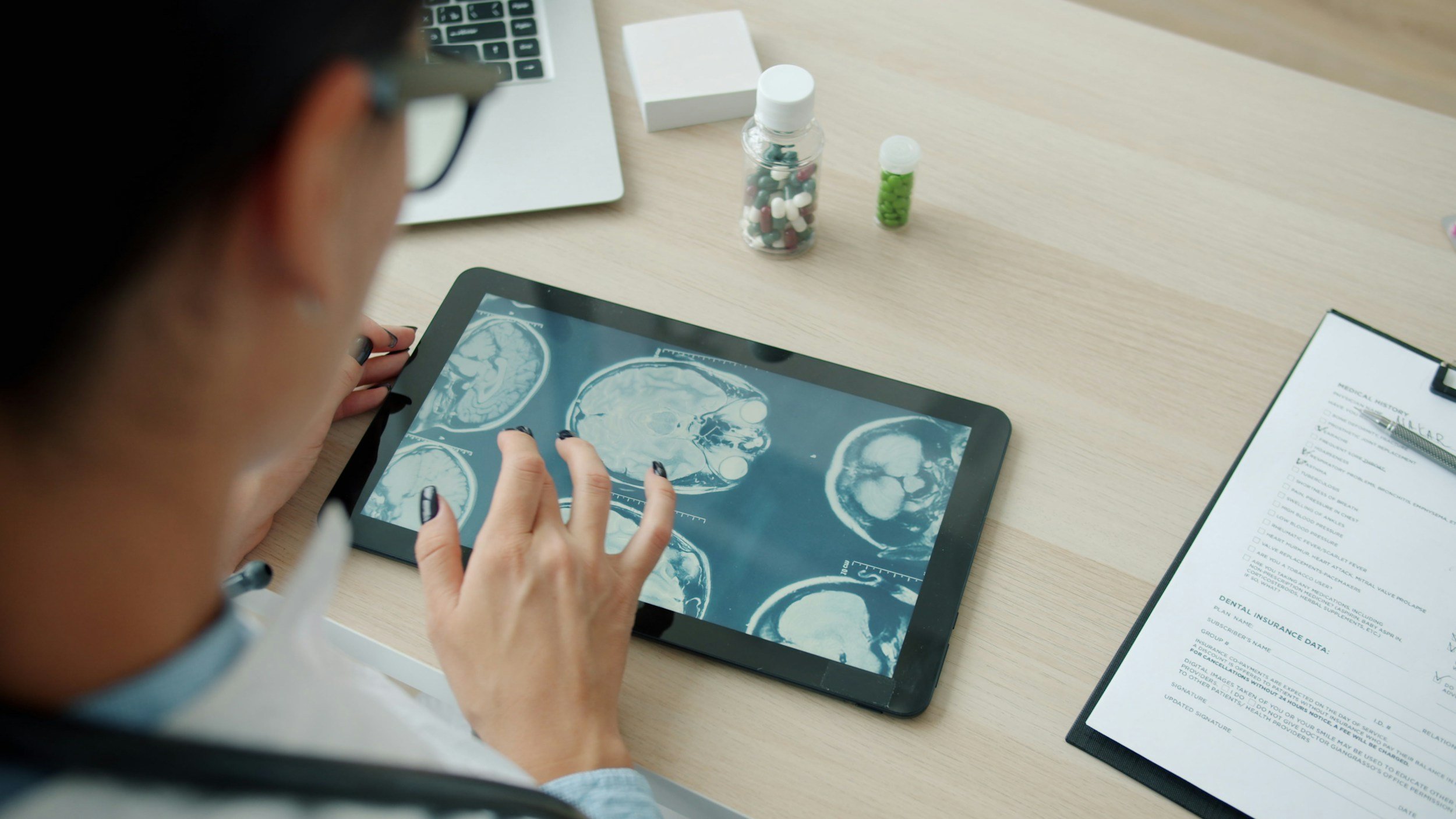Can a Herniated Disk Heal on Its Own?
Herniated discs are a common medical issue affecting 5 to 20 adults per 1000 each year. Furthermore, it most often occurs in adults in the 30s, 40s, and 50s, with men being affected twice as often as women. [1] Certain variables can increase the risk of disc herniation such as physical labor, smoking, frequent driving, obesity, and sedentary lifestyle. Some individuals also have a greater risk of developing a herniated disc due to genetic factors. [2] While this condition may cause a certain degree of discomfort, there are many treatment options. In many cases, a herniated disc can heal on its own without the need for further interventions like physical therapy or surgery. [3]
What is a Herniated Disc?
A herniated disc is a condition in which the space between vertebrae in the spine becomes displaced or compressed. It can occur anywhere along the spine. These discs act as cushions or shock absorbers for the spine when movement occurs. [4] Unfortunately, they can be damaged or degenerate over time. When this happens, the nerves may be affected, leading to burning and stinging sensations across different parts of the body. You may also experience weakness, numbness, and pain that inhibit your ability to complete some tasks. [5]
Symptons of a Herniated Disc
Symptoms will occur in a specific area depending on where the disc herniation is located. For example, if the C6 nerve in the neck is compressed, patients may experience pain in the neck all the way down to the hand among other symptoms. [6] To diagnose this condition, your physician will likely ask you questions about your symptoms and daily activities. They may also conduct a physical exam and order imaging in the form of a CT or MRI. In some cases, your physician may order an X-ray if they suspect a fracture. [7] A disc can heal without surgery, though this varies depending on the extent of herniation.
In many cases, disc herniation will resolve on its own without any treatment needed within a few weeks. Some cases take longer to resolve on their own – up to 12 weeks. [8] The use of ice and resting may help resolve symptoms during this time. [9]
Medical Treatments
If symptoms do not resolve within this timeframe, then more advanced treatment may be required. If symptoms do not improve, nonsurgical treatment options include physical therapy, medications, or steroids.
A physical therapist may prescribe certain exercises, which could speed up recovery and resolve symptoms altogether. Your physician may wish to prescribe medications such as gabapentin, pregabalin, duloxetine, meloxicam, or a medrol dosepak (a six day course of oral steroids) when symptoms are caused by nerve damage.
In other cases, your physician may prescribe muscle relaxers, opioids, or injections to alleviate symptoms. [10] Epidural corticosteroid injections can be used to avoid short term pain relief, though are often not a long-term solution. The duration of relief of symptoms is dependent on the patient and their specific symptoms.
You may also wish to take non prescription pain medications, at the recommendation of your doctor, to assist with managing the condition. [11]
In more significant cases for patients who meet criteria, surgery may be recommended. Criteria may include radicular pain that impairs quality of life, development of significant neurological deficits, bladder and bowel impairment, trouble with moving around, or if other treatments fail. Surgery, however, is not guaranteed to completely alleviate one’s symptoms. [12]
Summary
In summary, a herniated disc is a common medical condition that often resolves in weeks to months without any additional treatment. In some cases, therapy, medication, or surgery may be needed to completely resolve the issue. While there is no way to entirely prevent getting a herniated disc, exercise, practicing good posture, maintaining a healthy weight, and avoiding smoking may decrease your overall risk. [13]
Sources
Dydyk AM, Ngnitewe Massa R, Mesfin FB. Disc Herniation. In: StatPearls. Treasure Island (FL): StatPearls Publishing; January 18, 2022. https://www.ncbi.nlm.nih.gov/books/NBK441822/#article-20584.s2.
Herniated disk. Mayo Clinic. https://www.mayoclinic.org/diseases-conditions/herniated-disk/symptomscauses/syc-20354095. Published February 8, 2022.
Dydyk AM, Ngnitewe Massa R, Mesfin FB. Disc Herniation. In: StatPearls. Treasure Island (FL): StatPearls Publishing; January 18, 2022. https://www.ncbi.nlm.nih.gov/books/NBK441822/#article-20584.s 2 .
Herniated disc. American Association of Neurological Surgeons. https://www.aans.org/en/Patients/NeurosurgicalConditions-and-Treatments/Herniated-Disc.
Dydyk AM, Ngnitewe Massa R, Mesfin FB. Disc Herniation. In: StatPearls. Treasure Island (FL): StatPearls Publishing; January 18, 2022. https://www.ncbi.nlm.nih.gov/books/NBK441822/#article-20584.s2.
Ibid. Why does a herniated disk happen & will it go away? Cleveland Clinic. https://health.clevelandclinic.org/whydoes-a-herniated-disk-happen-will-it-go-away/. Published October 5, 2020.
Herniated disk. Mayo Clinic. https://www.mayoclinic.org/diseases-conditions/herniated-disk/symptomscauses/syc-20354095. Published February 8, 2022.
Dydyk AM, Ngnitewe Massa R, Mesfin FB. Disc Herniation. In: StatPearls. Treasure Island (FL): StatPearls Publishing; January 18, 2022. https://www.ncbi.nlm.nih.gov/books/NBK441822/#article-20584.s2.
Herniated disc. American Association of Neurological Surgeons. https://www.aans.org/en/Patients/NeurosurgicalConditions-and-Treatments/Herniated-Disc.
Herniated disk. Mayo Clinic. https://www.mayoclinic.org/diseases-conditions/herniated-disk/symptomscauses/syc-20354095. Published February 8, 2022.








